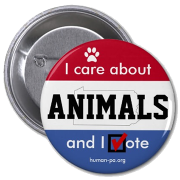 Representatives Madeleine Dean and Tarah Tohill have introduced bi-partisan legislation that will prohibit ivory and rhinoceros horn importation to Pennsylvania in addition to selling, purchasing bartering and possession with the intent to sale. The Judiciary Committee will be holding a hearing on Feb. 24th.
Representatives Madeleine Dean and Tarah Tohill have introduced bi-partisan legislation that will prohibit ivory and rhinoceros horn importation to Pennsylvania in addition to selling, purchasing bartering and possession with the intent to sale. The Judiciary Committee will be holding a hearing on Feb. 24th.
Take Action:
Please call, write, e-mail, or use social media to contact your State Representative to request their support of HB248: Your message can be short, stating simply “I am a constituent – please support Representative Dean’s legislation to end the ivory trade in PA!”
Why Ban Ivory Sales? Key Facts:
Extinction: Elephants face extinction within a decade. One elephant is killed every 15 minutes for ivory, which is approximately 96 a day, 35,000 killed annually. In South Africa alone, a staggering 1,215 rhinos were killed by poachers in 2014, that’s one every eight hours. This is a global crisis and immediate action is needed in order to save keystone species from extinction.
Terrorism and National Security: The illegal ivory trade funds terrorism and directly funds Al-Qaeda affiliate Al-Shabaab, the Lord’s Resistance Army, Janjaweed, Boko haram, among other terrorist organizations.
Law Enforcement: A complete ban on all ivory and rhino horn sales is needed. New ivory is being stained to look antique and is smuggled into the U.S. where it’s sold openly on the marketplace. It’s nearly impossible for law enforcement to tell the difference between “antique” ivory and new ivory that is stained to look “antique.” It’s even difficult for the most sophisticated scientific laboratories to tell the difference.
Additional Laws are Needed: The federal government restricts the export, import and interstate commerce of ivory and rhino horn. However, intrastate traffic is unregulated by the federal government, therefore we have a duty in the Keystone state to take action now and help save keystone species from extinction for future generations of Pennsylvanians.
Additional Key Facts:
-The poaching rates are outpacing the reproductive rates of elephants and rhinos in the wild.
– Exceptions are given for documented antiques, musical instruments, inherited products and use by Federal or State Authorities using them for scientific or law enforcement purposes.
-Ivory trade brings with it the loss of human life. More than 1,000 rangers have been killed over the last decade in Africa.
-In the tri-state region, New Jersey and New York took action in 2014 to shut down the ivory trade. New Jersey set the precedent by enacting a complete domestic ivory and rhino horn sales ban. Other states are on the process of introducing similar measures.
-Wildlife trafficking, worth an estimated $19 billion annually, is the fourth largest illegal trade in the world after drugs, counterfeit goods and human trafficking.
-The U.S. is the second largest consumer of ivory after China.
-As a keystone species elephants are vital to the ecosystem.
-Recent studies show that the majority of ivory on the U.S. marketplace is illegal.
Definitions of Ivory & Rhinoceros Horn:
- A tooth or tusk composed of ivory from any animal, including but not limited to, an elephant, hippopotamus, mammoth, narwhal, walrus or whale, or a piece thereof, including raw ivory or worked ivory made into an ivory product.
- Ivory Product: an item that contains or is wholly or partially made from ivory
- Raw Ivory: an ivory surface, polished or unpolished, unaltered or minimally changed by carving
- Rhinoceros Horn: the horn or a piece of horn from any species of rhinoceros
- Rhinoceros Horn Product: an item that contains or is wholly or partially made from a rhinoceros horn
For additional information about the ivory trade – check out Elephants DC

